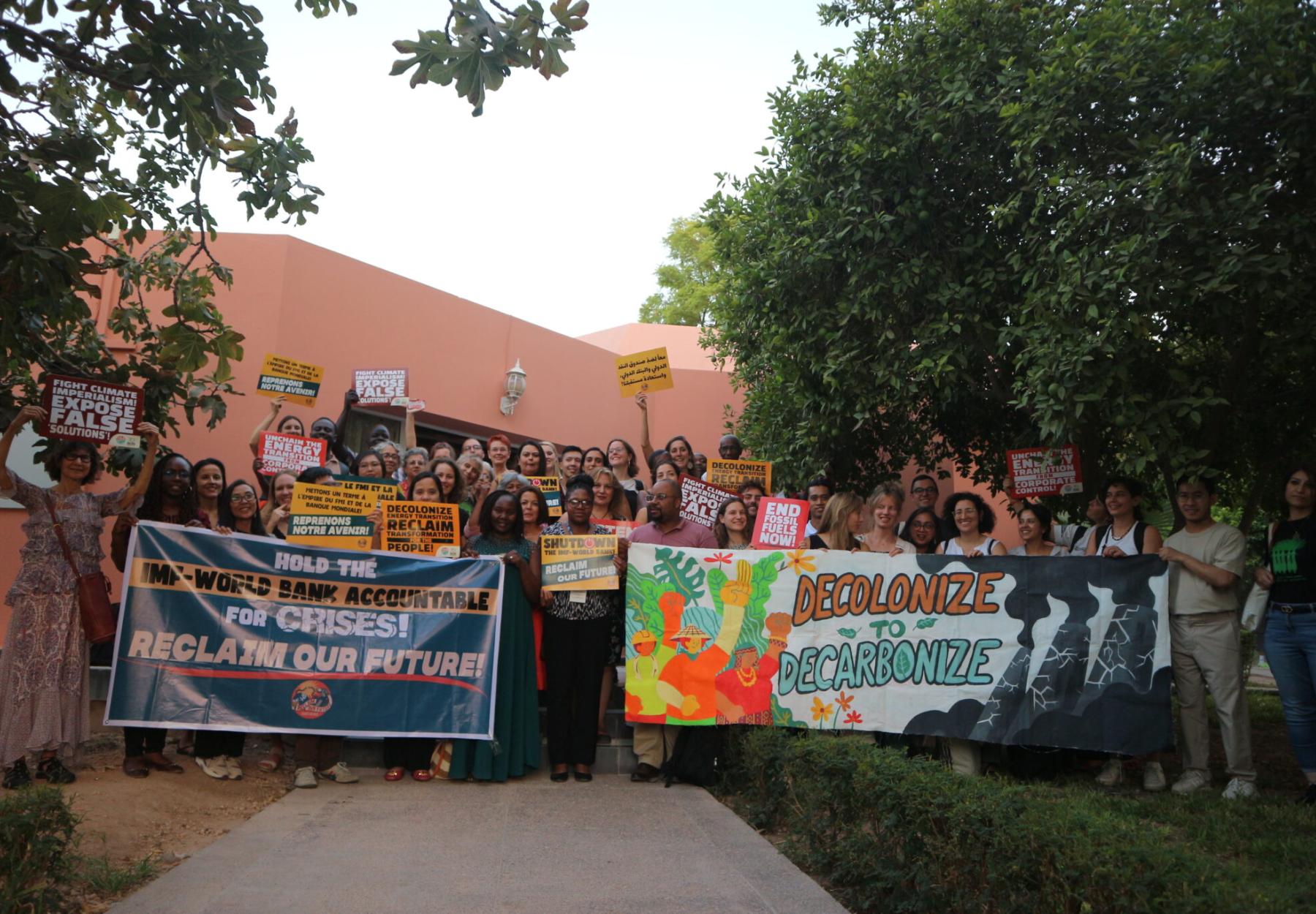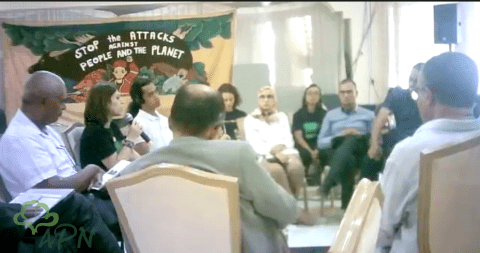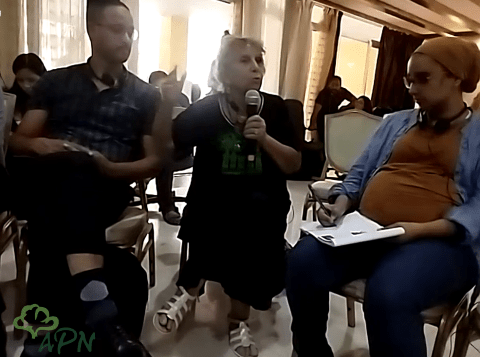
APN | Marrakesh - Morocco
8-9 October 2023
In conjunction with the 79th Annual Meeting of the International Monetary Fund (IMF) and the World Bank (WB), APN took part in the "Reclaim Our Future" conference in Marrakech, Morocco. Serving as both an organizer and speaker, APN joined forces with various social movements, civil society organizations, and advocates for food sovereignty from the Arab world and the Global South. This event, which took place on 8 – 9 October 2023, stood as a collective rejection of the programmes set forth by the IMF and WB.
The conference included plenary sessions addressing the agenda items of the IMF and World Bank Group meeting, focusing on their policies and programmes in West Asia and Africa. Workshops were conducted to scrutinize the accountability of these institutions for the myriad damages and crises inflicted upon people due to their economic programmes. Additionally, participants actively engaged in shaping a counter-discourse to challenge and counterbalance these programs.
During the workshop addressing the influence of the IMF and WB on land and agriculture in West Asia, North Africa, and globally, APN Media Coordinator, Asmaa Awwad, delivered a case study focusing on Jordan and Palestine titled "8 Decades of Attempting to Establish a Dependent Agricultural Economy". Awwad highlighted how the reforms mandated by the IMF and WB in Jordan adversely affected the agricultural sector. These reforms resulted in a considerable decrease in the annual government expenditures of the Ministry of Agriculture, reaching a mere 0.67% of the budget in 2023 under the supervision of the IMF. This reduction coincided with a surge in the poverty rate from 3% in 1987 to 24.1% in 2022. Furthermore, Jordan's arable land utilization plummeted to a mere 12%. The ownership of land became concentrated among a few large, subsidized farmers primarily engaged in the production of low-value crops for export markets. Meanwhile, numerous small-scale farmers faced challenges accessing local markets, contending with subsidized foreign crops that posed competition to their products.
Regarding Palestine, Awwad discussed the economic challenges posed by the occupation and the involvement of international institutions. The Oslo Accords of 1993 played a pivotal role in shaping the Palestinian economy, with the assistance of the WB and IMF. In 1995, the IMF established an office in the West Bank and Gaza, complementing the WB's initiation of operations in the Palestinian territories in 1992. Over the 30-year span of the Oslo Accords, the agricultural sector in Palestine experienced a notable decline, despite the support of the WB and IMF. Agricultural initiatives shifted focus towards projects catering to the Israeli market and exports. Examples include grants and loans aimed at promoting the cultivation of roses, along with limited and small-scale projects that fell short of comprehensive land reclamation and cultivation efforts.
APN and the Arab Network for Food Sovereignty (ANFS) put forth their recommendations in the final statement. These recommendations aim to advocate for the rights of people and their sovereignty over their food and natural resources. Additionally, they seek to oppose the financial initiatives and programs of the WB and IMF that cater to the interests of big food processing companies rather than addressing our food needs.


